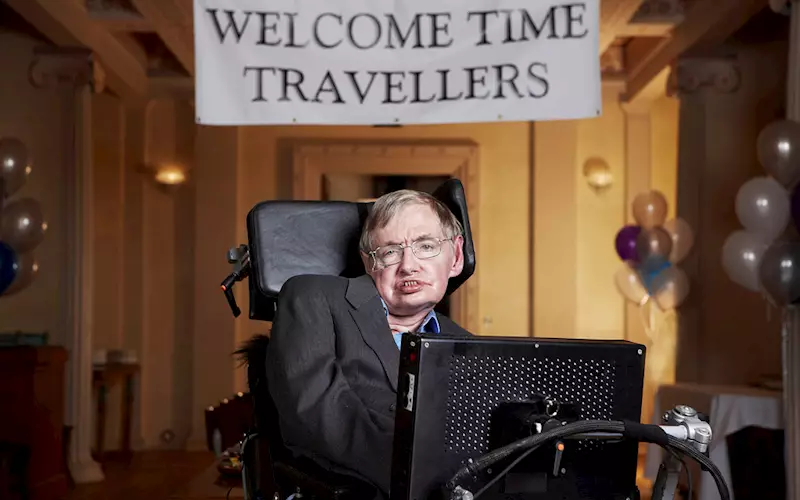Stephen Hawking, the best known scientist, is no more
"Life would be tragic if it weren't funny."
"The greatest enemy of knowledge is not ignorance, it is the illusion of knowledge."
- Stephen Hawking
14 Mar 2018 | By PrintWeek India
Stephen Hawking, the brightest modern-day physicist and author of A Brief History of Time, is no more. Hawking died at his home in Cambridge at the age of 76.
In 1963 at the age of 23, Hawking was diagnosed with motor neurone disease. Though he was expected to live for not more than two years, the slower than the usual progress of the disease saw him survive for more than five decades.
Hawking’s big bang quantum theory came in 1974, which capitulated him as the brightest star in the firmament of science, inspiring many with his insights on modern cosmology.
Sam Gulve of EFI, who holds a PhD and has a special interest in quantum physics, in his condolence message, said, “The man who lost the ability to speak, told us so much about the wondrous, mysterious world we live in. Now that you have been elevated to a higher state of quantum superposition with the likes of Einstein, Bohr and Schrodinger, I hope science remains forever entangled in your theories and wisdom. Like the Schrodinger's cat you are now both, dead and alive; alive through your infinite gifts to science. Goodbye from this world and hope to run into you in another, parallel universe one of these days.”
Ramu Ramanathan, editor of PrintWeek India recollects a Stephen Hawking talk he attended at Siri Fort in Delhi, years ago. “It was an incredibly humbling experience.”
Ramanathan added, “Stephen Hawking, the man who dreamed of One Planet One Race is no more... He is literally the reason, non-science people like me can claim to understand physics to a reasonable extent. Him, and Richard Feynman, and Jayant Narlikar. It is a beautiful metaphor that Hawkings dies on the 139th anniversary of Albert Einstein's birthday. Guru and shishya are together.”
Rest in Peace, Stephen Hawking.














 See All
See All